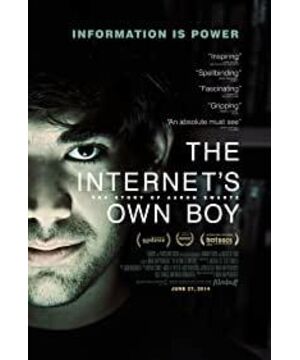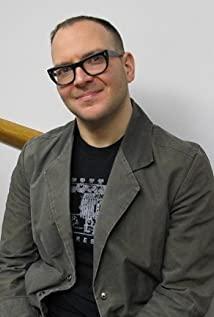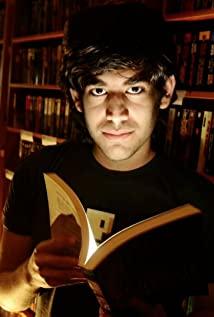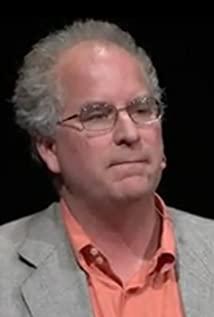Aaron Swartz is known as an Internet wizard. He was in contact with computers at the age of two or three. He created a website similar to Wikepedia at the age of 12, five years earlier than Wikipedia, which was later widely known. Like other geniuses, the so-called formal university education cannot satisfy his thirst for knowledge, even Stanford, a world-renowned university. After only one year, he dropped out of school and started a career in network entrepreneurship. Reddit, which he co-founded, was acquired by Wired at a high price of over one million dollars. He was only 19 years old that year.
Throughout his life, Aaron Swartz has been fulfilling the ethical principles he believes in: information sharing and freedom of speech. The person he admires most is Tim Berners-Lee, the inventor of the Internet. Berners-Lee opened up the results of his years of work to the world free of charge, and this is how the Internet is today. Since his teenage years, Aaron Swartz has relentlessly resisted Internet censorship and called for the freedom of resource sharing and information exchange. With his help, the well-known RSS was born. Later, he co-founded the social news networks Reddit and Demand Progress to fight against Internet censorship. One of his most famous cases was that in 2008, he helped Carl Malamud download more than two million federal court documents from the PACER database belonging to the Administrative Office of the United States Courts. These files belong to the public and are not protected by copyright law, but Pacer illegally makes money from them, charging 8 cents for the download of each page of files. This alone makes a profit of more than one million US dollars per year. Aaron Swartz was investigated by the FBI for two months, and was finally withdrawn without charge. Another well-known case is as a new force in the anti-Internet Piracy Prohibition Act. In 2012, the "Freedom of Connection" rally in Washington, DC, delivered a speech on "How do we end the Prohibition Internet Piracy Act". When the bill was judged not to pass, he said: “We won because each of us became a hero who wrote our own story. Everyone tried our best to save the freedom that is so important to us.” The
most famous is The case of Jstor that put him behind bars. From 2010 to 2011, he used MIT's IP address to "illegal" download countless academic journal articles on Jstor within a few weeks. At that time, he was a researcher at the Safra Research Lab of Harvard University. He could use the Jstor database for free without illegal downloading. His move can only be interpreted as a direct challenge to the Internet censorship system. And what he wants to do with so many Jstor documents, only he knows. Maybe he wants to use these documents for data analysis, maybe he wants to relieve the third world that cannot reach the first world archives. No matter what his purpose is, for this, he paid a heavy price.
I have always felt that some people do not belong to this world, such as Jesus, Mozart, Van Gogh, and Aaron Swartz. The sudden death of Aaron Swartz did not surprise me, but it made me feel extremely sad, not only because of the loss of a genius in this era, but also because of the fact that the open source camp was missing a cadre, but because of his death. Out of the darkness of this world. As shown in the movie, Aaron Swartz's sentence is too heavy-he was convicted of 13 crimes including communication fraud, computer fraud, and destroying protected computers. He was sentenced to up to 35 years in prison and fined. 1,000,000. After Jstor dropped the complaint against Aaron, the US government still insisted on imposing heavy fines on the latter. What did he do to make the government so painful? Just because you have downloaded countless academic documents? Because of breaking into MIT's property privately? Because it violated the copyright law? In the eyes of Aaron Swartz's relatives, friends, and fans, these are all reasons why shit doesn't make sense. They believe that the root cause is that Aaron has long been a thorn in the government's public power, and the government has made it clear that it will kill chickens for the monkeys. The choice he faces is: plead guilty, go to jail, and start life again after bail; or, not plead guilty, go to court, and fight to the end. Aaron Swartz chose the latter.
Did Aaron really commit the crime he accused? This is probably a Rashomon. I have no research on this case, but I don’t want to follow the film director’s stance easily, and I am not satisfied with the film’s selective opening of information (for example, what was the state of Aaron in the last two years? Why is Berners-Lee so famous? And none of the people who were working at MIT could save him?). But if we choose to believe in Aaron Swartz, then the world is not worthy of him. He doesn't love money, fame and fortune, and he doesn't just want to be a master of the Internet. What he wants to do is to use Internet technology to transform the unreasonableness of the entire society. He is not only a hacker, he is also a young politician and social activist. His intelligence is not only in technology, but also in his innate compassion for humans, and a natural hatred and hostility to social control. His thinking surpassed most of his contemporaries. However, the last thing a ruler needs is a free man like Aaron. The latter is particularly "dangerous" because he sees through the former's "imperial skills". Aaron Swartz went to the cross for those who pursue freedom.
"I am a sword, I am a spark, I wish to be born like a flash of lightning, and I wish to die like a comet." The world is sorry for Aaron Swartz, but he is absolutely worthy of this sentence.
The unique thing about this movie is that it can be downloaded freely on the Internet and there is no copyright issue. This is a tribute to Aaron swartz!
Postscript: Aaron's friend and collaborator, Harvard Law School professor Laurence Lessig, launched the campaign fundraising reform (Mayday Pac) after his death, aimed at weakening the manipulation and influence of the big chaebols on American political campaigns. He successfully raised five million U.S. dollars before the end of June 2014, and was matched to 12 million U.S. dollars by other fundraisers. Mayday pac’s goal is to bring out five members of Congress who do not support campaign fundraising reforms in the 2016 election. In a Ted talk, Lessig said that he had a conversation with Aaron Swartz, who was only 15 years old, after a Ted talk. Aaron asked him: "You just talked about the ills of Internet censorship and control, do you have any practical solutions to solve these problems?" Lessig said embarrassingly, "No. I'm a scholar, I'm only responsible for doing research. It’s not my business to solve the problem.” Aaron then asked, “You are a scholar, so it’s not your business to solve the problem. Then, what about you as a citizen?”
Lessig’s Mayday pac is to Aaron. The answer to this question back then. Aaron Swartz, if he knew it in Heaven, would definitely find it very comforting.
View more about The Internet's Own Boy: The Story of Aaron Swartz reviews









